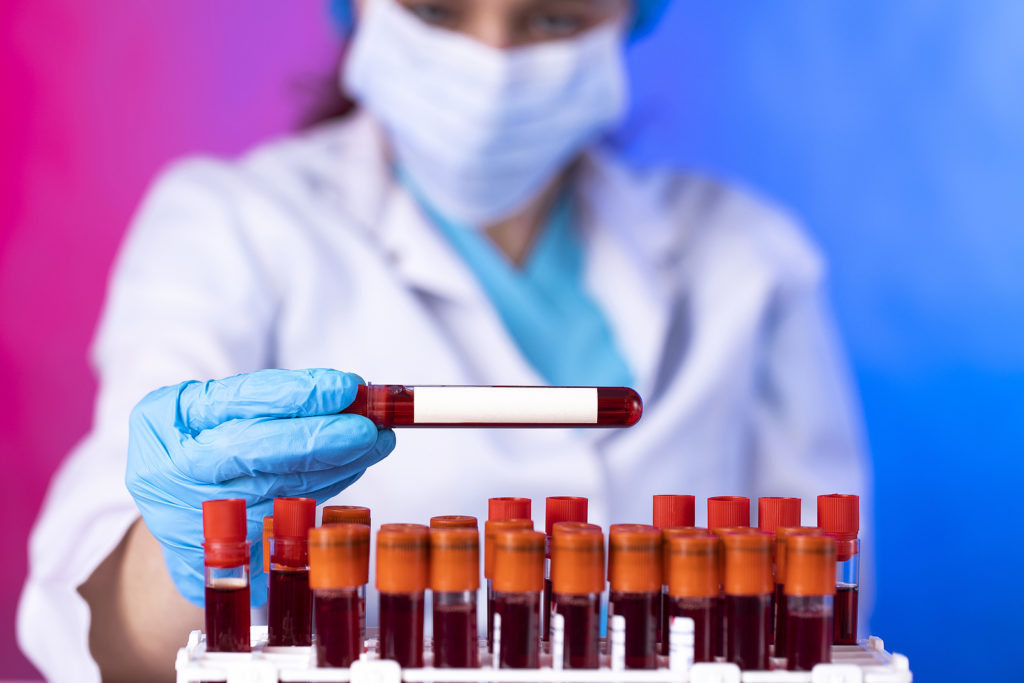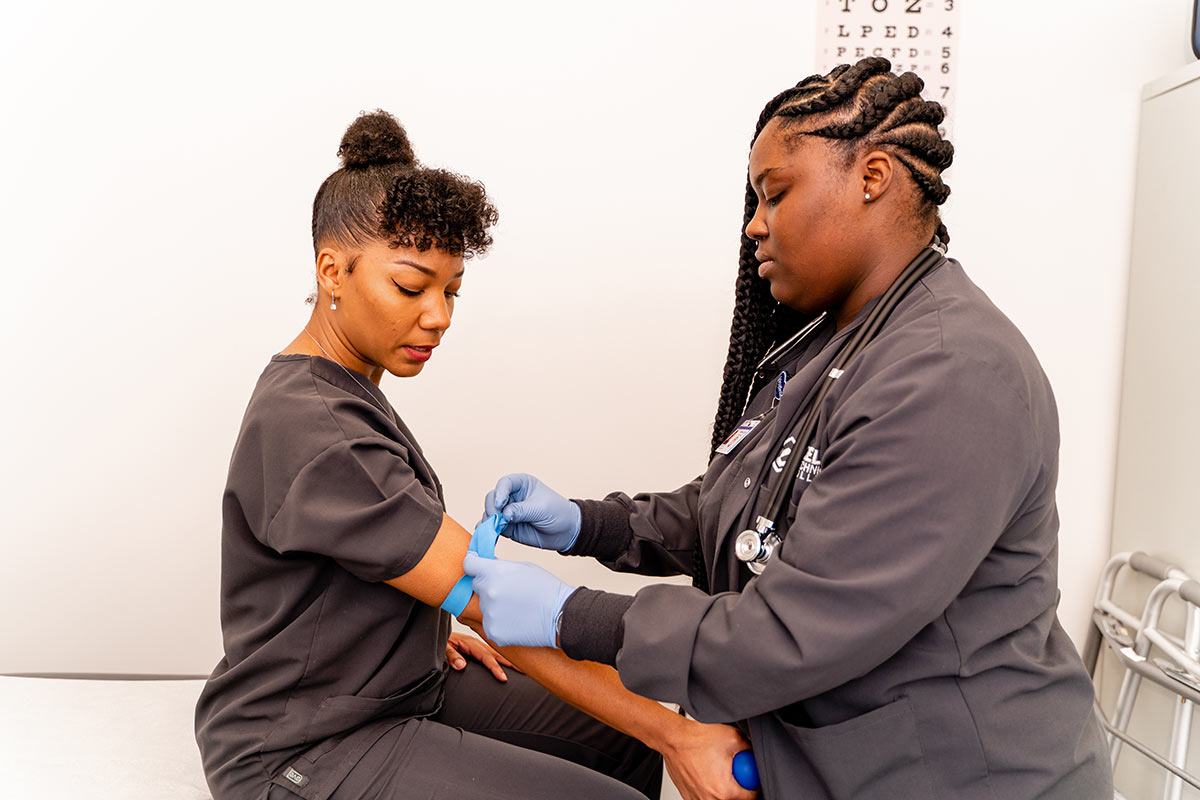Phlebotomy Training Course Success Tips: Networking Strategies
Phlebotomy Training Course Success Tips: Networking Strategies
Blog Article
The Course to Qualification: Comprehending the Phlebotomy Educating Training Course Journey and Its Importance
As you take into consideration the course to qualification in phlebotomy, it's vital to understand the function you'll play in medical care. Your training will certainly cover essential abilities, from blood collection strategies to patient communication.

The Function of Phlebotomists in Healthcare
Phlebotomists play an essential duty in the healthcare system, functioning as the vital link in between patients and important diagnostic testing. You'll carry out blood attracts, guaranteeing samples are accumulated accurately and securely. Your proficiency helps in diagnosing clinical problems, monitoring health and wellness, and assisting treatment choices.
In your everyday interactions, you'll need to develop trust with clients, making them feel comfy during what might be a demanding experience. You are accountable for labeling and dealing with examples very carefully to stop contamination or errors, which might affect test results.
Beyond this, you'll typically function alongside medical professionals and nurses, interacting crucial info about clients' conditions. By understanding your skills, you contribute meaningfully to client care, making you a crucial component of the clinical group.
Overview of Phlebotomy Training Programs
When exploring phlebotomy training programs, you'll discover numerous kinds made to fit various schedules and learning styles. Each program assists you create vital skills like blood collection and person communication. Understanding these choices is essential to choosing the ideal path for your career.
Sorts Of Training Programs
Numerous kinds of training programs are readily available for those looking to come to be skillful in phlebotomy. In addition, some medical facilities and centers supply on-the-job training programs, offering useful experience while you find out. Whatever path you choose, each program intends to outfit you with the required abilities for an effective phlebotomy job.

Secret Skills Developed
Understanding phlebotomy calls for a set of essential skills that are established through comprehensive training programs. Additionally, communication abilities are basic; you'll require to interact with patients, describe procedures, and placed them at ease. Each of these skills is important for your success as a licensed phlebotomist, making you a beneficial possession in any kind of healthcare setup.
Secret Components of a Phlebotomy Course
In a phlebotomy training course, you'll concentrate on vital subjects that prepared for your future job. You'll participate in hands-on training that enables you to apply what you've discovered in real-world setups. Both the core educational program and useful experience are important for your success as a phlebotomist.
Core Curriculum Review
While going after a phlebotomy training program, you'll run into a core curriculum designed to equip you with fundamental skills and knowledge. Phlebotomy Courses Near Me. This educational program usually consists of anatomy and physiology, focusing on the circulatory system and recognizing blood elements. You'll likewise find out about various sorts of blood collection methods, including venipuncture and capillary leak techniques
In addition, infection control and security procedures are vital components, guaranteeing you understand just how to preserve a sterilized environment. You'll examine patient interaction, stressing communication and empathy, which are essential for reducing client anxiety. Moral and lawful considerations will be resolved, preparing you for real-world responsibilities. This fundamental knowledge will allow you to stand out as a phlebotomist and supply top quality treatment in medical settings.
Hands-On Training Experience
Getting hands-on experience is a vital part of your phlebotomy training course. This sensible training allows you to apply what you've learned in a real-world setup, boosting your skills and confidence. You'll exercise venipuncture strategies, discover exactly how to deal with different kinds of samplings, and obtain familiar with the devices made use of in the field. Under the support of seasoned trainers, you'll refine your abilities, ensuring you're planned for any kind of scenario you could encounter.
Furthermore, you'll obtain the possibility to engage with clients, which is vital for developing your interaction abilities. This combination of technical effectiveness and social skills is vital for your success as a licensed phlebotomist. Ultimately, hands-on training is where theory fulfills technique, solidifying your understanding and readiness for accreditation.
Certification and Licensing Demands
Prior to you can begin your occupation in phlebotomy, it is crucial to comprehend the accreditation and licensing demands that differ by state. Many states require phlebotomists to hold a qualification from an acknowledged company, such as the National Phlebotomy Association or the American Society for Clinical Pathology. These accreditations normally include passing a test Phlebotomy Classes Near Me that evaluates your understanding and skills in the field.
Along with certification, some states have particular licensing requirements. You may require to finish a specific number of hours in medical method, send evidence of training, or go through a history check. It is very important to research your state's policies to see to it you meet all needed requirements.
Remaining notified concerning these demands not only aids you secure a position yet likewise enhances your integrity as an expert. By meeting these demands, you'll be well on your way to a successful occupation in phlebotomy.
Hands-On Training and Practical Experience
Hands-on training and functional experience are important components of your phlebotomy education, as they permit you to use academic expertise in real-world scenarios. During your training, you'll participate in monitored venipuncture, learn appropriate techniques, and come to be aware of numerous blood collection equipment. This straight involvement is crucial for constructing your confidence and honing your abilities.
You'll work carefully with seasoned experts that can assist you with the nuances of individual interaction and example handling. Each practice session not just enhances your understanding however likewise prepares you for the busy atmosphere of health care setups.
Additionally, numerous programs integrate clinical turnings, permitting you to experience varied settings, from healthcare facilities to outpatient centers. This exposure helps you adjust to various obstacles and client demands, ensuring you're well-prepared for your future duty. Accept these chances, as they're essential to becoming an experienced and compassionate phlebotomist.
Obstacles Faced During Training
While getting hands-on experience is necessary, it's essential to identify the difficulties that can develop throughout your phlebotomy training. In addition, mastering the abilities required for blood draws takes technique; you might battle with method originally.
Time administration can additionally be a hurdle, as harmonizing theory, functional sessions, and personal commitments can feel daunting. You might face varying discovering paces amongst your peers, resulting in sensations of self-doubt if you believe you're falling behind. Lastly, adjusting to the different characters of trainers can be difficult, as each may have an one-of-a-kind teaching design.
Recognizing these obstacles at an early stage can prepare you for success and assist you create resilience throughout your training journey.
Profession Opportunities After Qualification

As you acquire experience, you could even think about specializing in areas like pediatric or senior citizen phlebotomy, accommodating specific person needs. Some phlebotomists select to advance their careers by ending up being laboratory specialists or pursuing additional education in health care areas.
In addition, your certification can cause duties in training or supervising new phlebotomists, allowing you to share your expertise. With the medical care sector continually growing, your skills will constantly be in need, leading the way for a secure and satisfying occupation. Welcome the possibilities awaiting you!
Frequently Asked Inquiries
What Is the Typical Period of a Phlebotomy Training Training Course?
Phlebotomy training courses generally last around four to 8 weeks. You'll engage in hands-on method, class guideline, and on the internet understanding. Finishing this training prepares you for certification and a gratifying profession in health care.
Are Online Phlebotomy Courses Available?
Yes, on the internet phlebotomy courses are available. They use adaptability and ease, permitting you to examine at your own pace. Just validate the program is certified to fulfill qualification needs and gain useful abilities for your career.
Just How Much Does Phlebotomy Training Generally Expense?
Phlebotomy training generally costs in between $700 and $2,500, depending upon the program and place. You should take into consideration elements like program length, included products, and hands-on experience when picking the ideal training for you.
What Are Usual Requirements for Phlebotomy Training?
Common requirements for phlebotomy training frequently consist of a high school diploma or GED, immunizations, and a background check. Some programs might likewise require basic healthcare understanding or qualifications, guaranteeing you're planned for hands-on training.
Can I Work While Finishing My Phlebotomy Training?
Yes, you can work while finishing your phlebotomy training. Numerous pupils balance tasks with their researches, however ensure to handle your time successfully to assure you fulfill both job and training commitments successfully.
Report this page